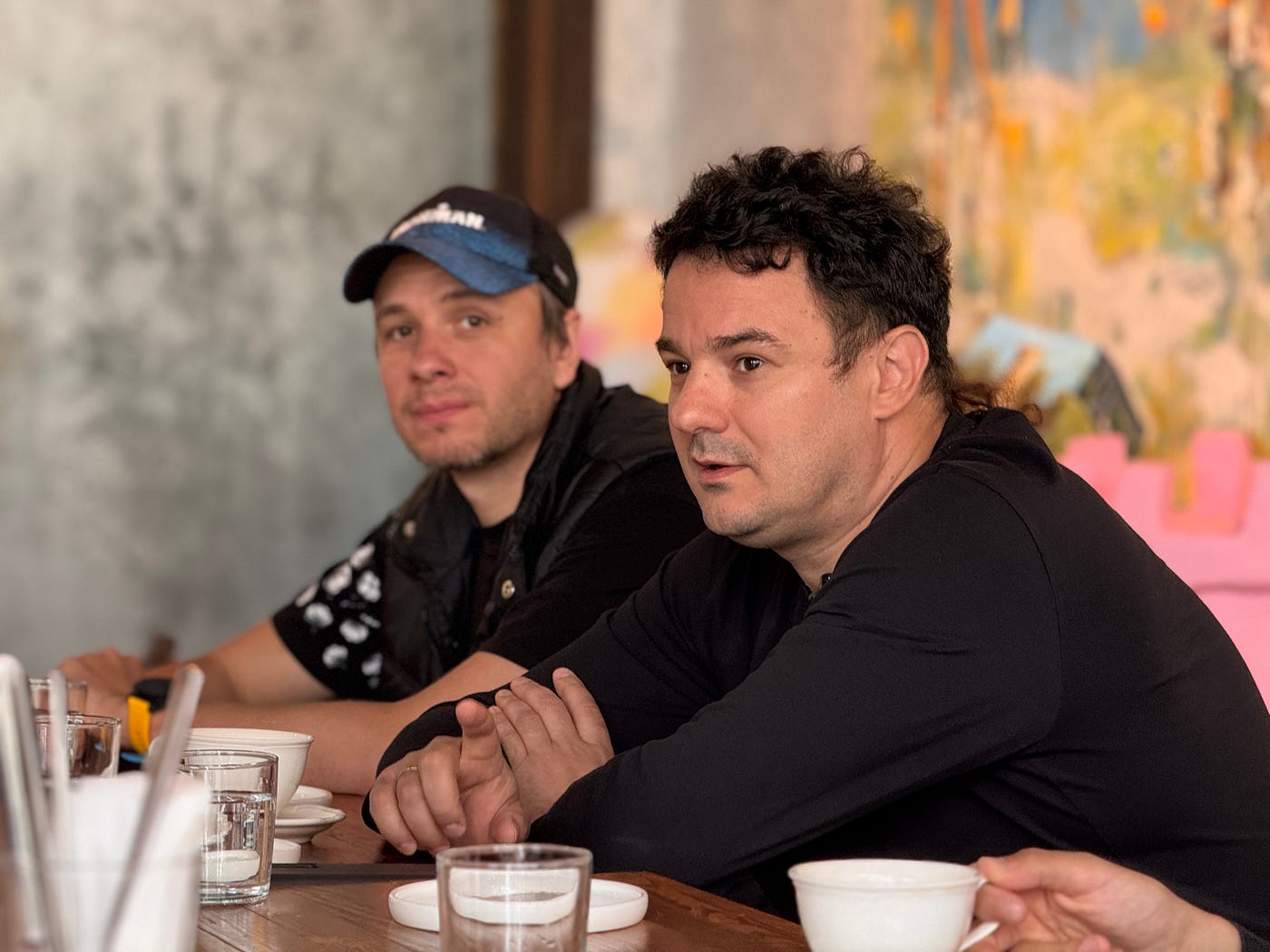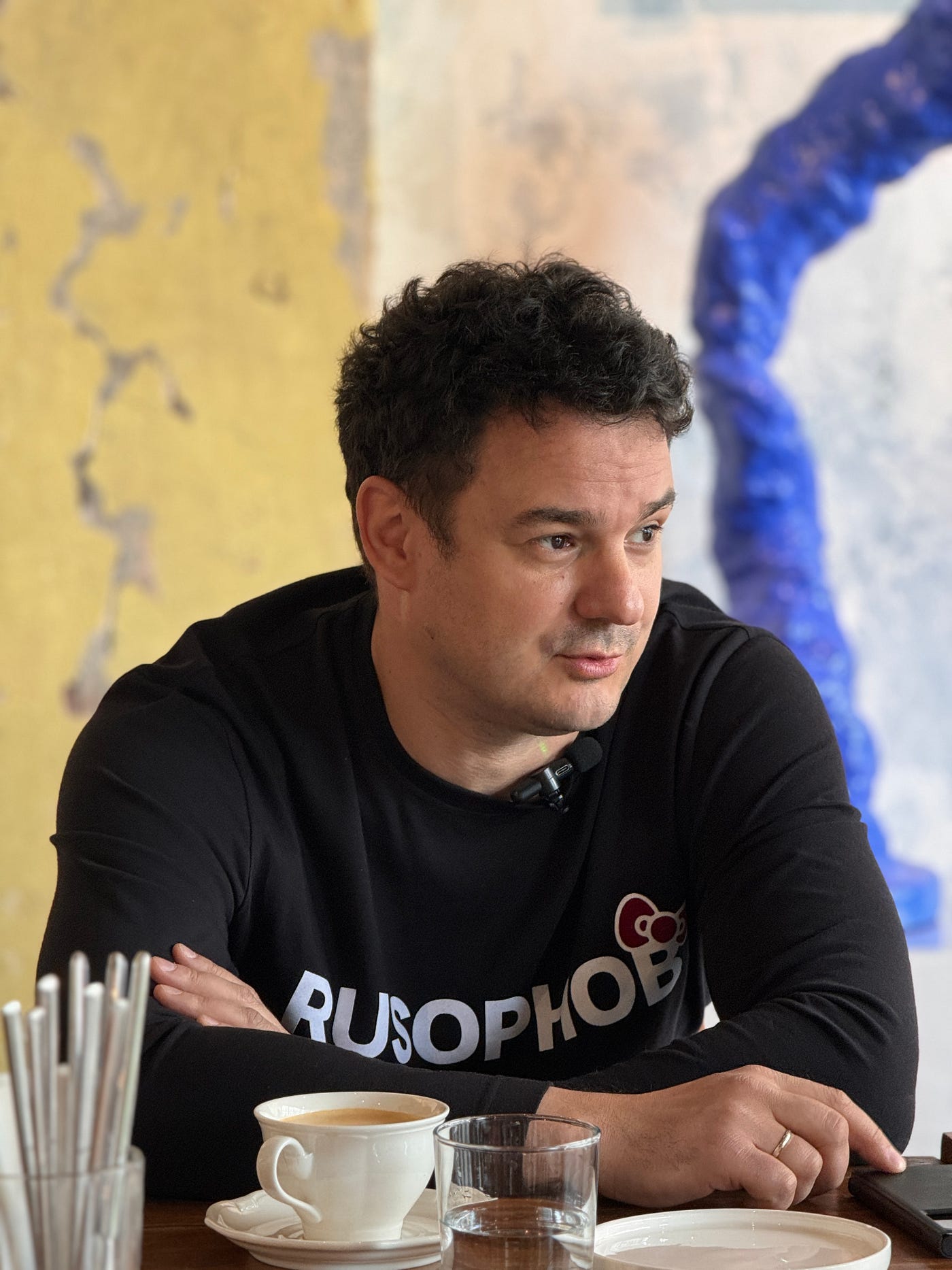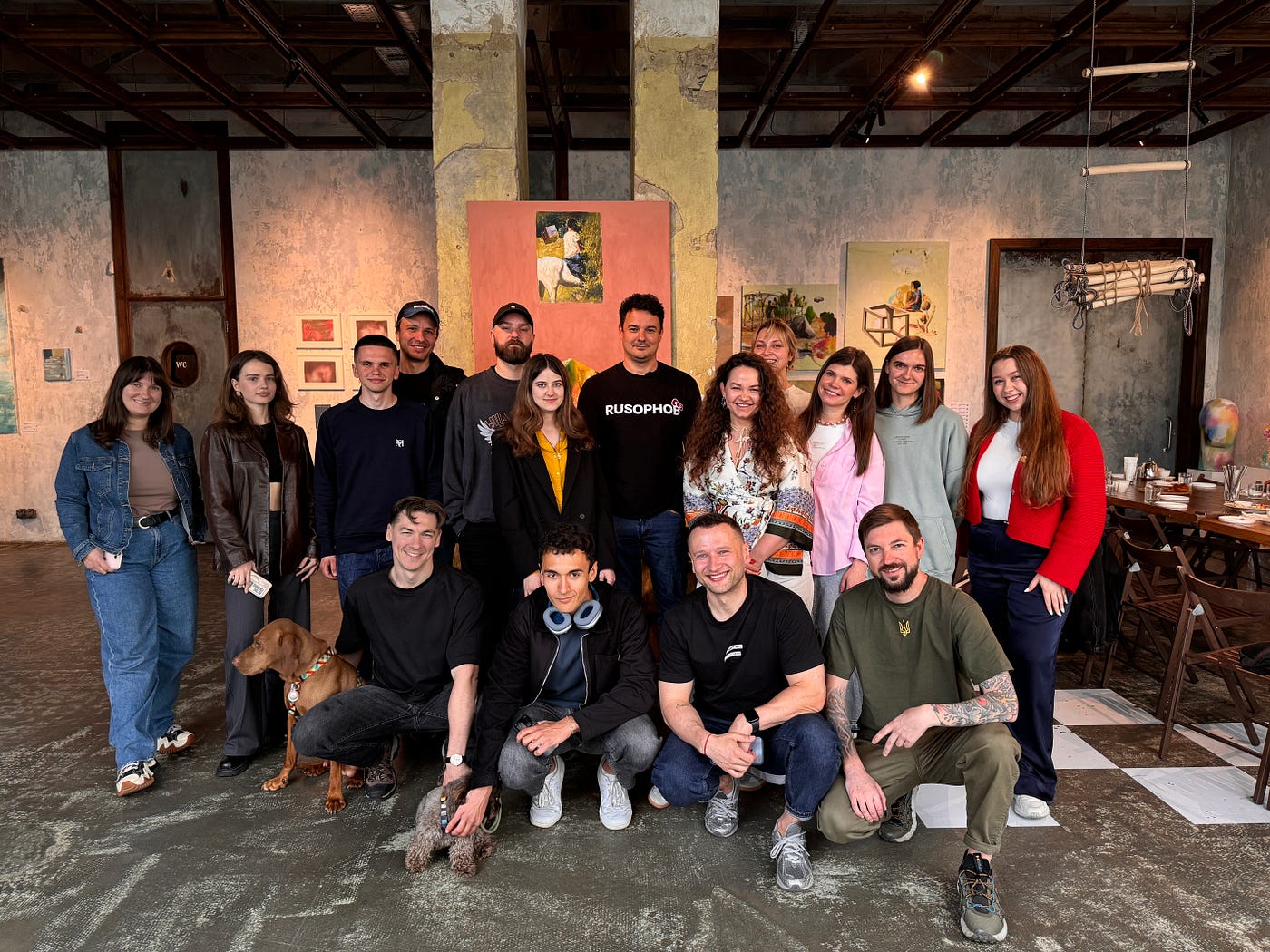May 16, 2024
August 16, 2025
Fundraising can provide startups with many resources for its development, allowing for quicker scaling and product improvement. It facilitates hiring top experts for innovation etc. However, it may not be necessary for all. This topic was clarified by
Denis Dovgopoliy, who was a guest at one of the business breakfasts of the Mission Possible venture building program.

Denis’ venture journey began 19 years ago in Silicon Valley. Executive experience, entrepreneurial activity, consulting and an MBA allowed Denis to adapt quickly.
Denis admits that, thanks to the powerful education of the Institute of Aerospace Technologies at Kyiv Polytechnic Institute, where he studied a lot of mathematics, mathematical physics, and tensor analysis, he never saw difficulties in understanding AI or in general understanding the technical components of a product.
In 2006, he founded the consulting company Bayview Innovations, which helped startups build businesses, and a year later they added consulting for investors. He also organized numerous initiatives and events to support startups and develop venture capital in Ukraine.
Later, Denis became a co-founder of iForum and launched the initiative Silicon Valley Best Practices Kyiv Master Classes, inviting entrepreneurs from the USA and Europe, who told Ukrainian entrepreneurs how to build technology businesses.
During his career, he focused on long-term investments and fundraising process automation. Having founded Unicorn Nest, Denis continued to support innovative companies. Currently, he is actively engaged in volunteer activity, lobbying and support Ukrainian tech ecosystem.
Today’s challenges for Ukrainian entrepreneurs lie in attracting investments, this is actually a starred task for many early stage startups. Therefore, the opinion of an expert on this matter is important. Denis shared advice and strategies that will help you increase the success rate in fundraising.
Tip 1: Develop a very narrow expertise in your field. For a successful startup, it is necessary to have a deep understanding of the industry in which you work, to know the main players and problems. In addition, it is no less important to understand how startups work and how to build products.
Tip 2: Solve a specific problem. Denis emphasizes the importance of solving a specific problem using your own competencies, using available tools. This is where investments are not needed, but will give a significant boost to startup development.
“For me, sweet spot is a startup that has found a problem that it effectively solves through its competence, using a combination of open source products and open IP.”
Tip 3: Attract customers before investments. Denis highlighted the importance of having customers before launching a product and attracting the first investments, especially for B2B startups:
“If it’s B2B, you should have the first customers before you launch the product.”
Tip 4: Don’t try to get all possible grants. Excessive use of grants can only distract from the development of your startup and the problem you are trying to solve. This is the first thing you should focus on.
“Instead of building your business, you will spend 70% of your time on reporting.”
There are reflexes, but when your project reaches a KPI that demonstrates results, some difficulties can be forgotten. Investors are looking for projects in which the key KPI grows by 5–10% every week for the last 20 weeks. When they find such a project, they come to Kyiv and negotiate even under rocket attack.

Usually, the average age of entrepreneurs who have achieved success is 42 years, and by then they have already had approximately 4–5 failed projects.
If previously, after a startup fuckup, an entrepreneur could only find a job as a programmer in a large corporation, now he can find an interesting job inside a large corporation in a creative position related to business development. This allows finding new opportunities and ideas for the next startup.
Firstly, one of the important aspects of a startup is the number of co-founders. Denis, having rich experience in participating in many boards, says that when a startup has 2 co-founders — it is a straight road to deadlock, they will not be able to agree among themselves. Three co-founders is a more optimal solution, from an investor’s point of view.
Secondly, it is important how long the co-founders have known each other and what difficulties they have overcome together.
“When I invest in a startup, one of the first questions is how long have you known each other and how many joint projects have you had. If less than five years and less than two projects — this is a bad sign.”
💡Remember, expertise and experience play a key role and it is normal when co-founders have different experiences and paths, but expertise in your field and entrepreneurial experience are the first things investors pay attention to.
If you are a solo founder, changes in personal life can significantly affect your startup. For example, the birth of a child or other circumstances can reduce your motivation and efficiency and investors understand these risks.
The cap table should reflect the balance between all participants in the startup, including co-founders, executive team and investors.
“If you have a key person and they don’t have equity, then you don’t have that person.”
Each important participant must be fairly rewarded to maintain motivation and engagement.
💡But an incorrect equity distribution carries the risk of making the company unfundable.
“If you have a co-founder who has left the business, and in the cap table he remained with 30 percent, then you are unfundable.”
It is also important for the executive team to have sufficient options: “If you have executives who do not have enough options, it is also unfundable”.
Only a fair and well-thought-out cap table will ensure stable startup development and trust from investors.

Learning from leading experts, experimenting, and implementing innovations — this is the mission each participant of the venture program Mission Possible strives to fulfill.